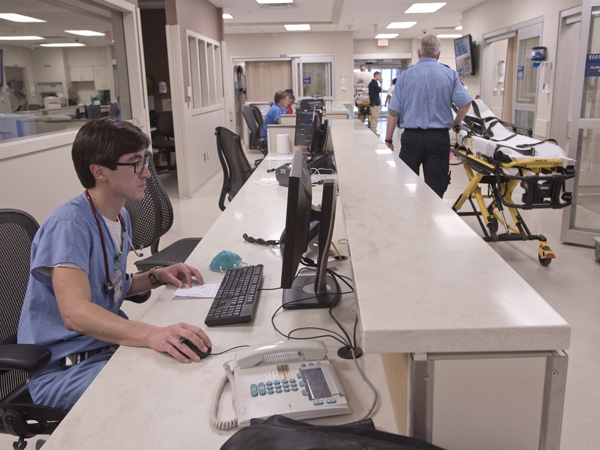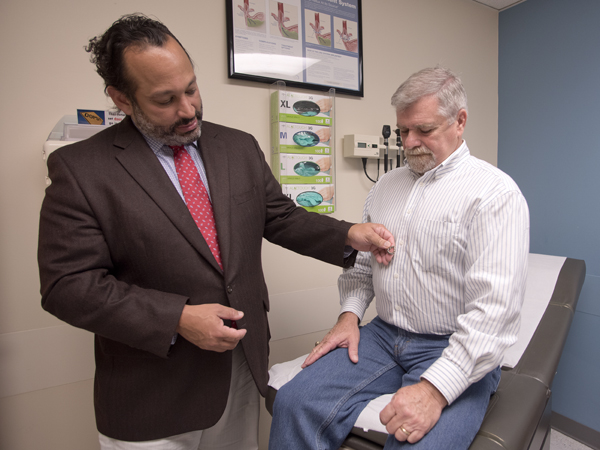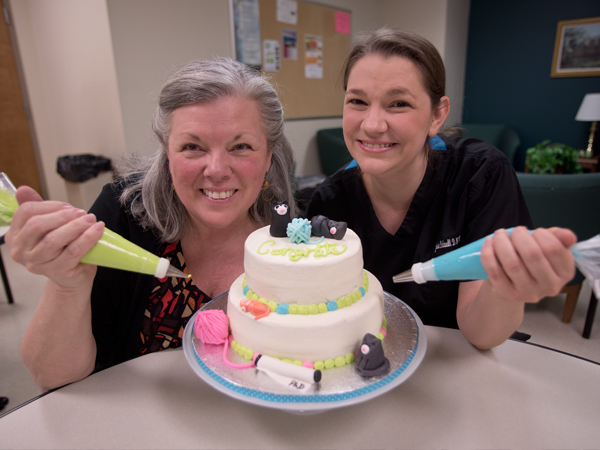|
It's become almost a new norm: Unprecedented high volumes of patients are keeping the University of Mississippi Medical Center hospitals at or near capacity, sometimes pushing demand for beds, staffing and other medical resources beyond what's available. Administrators have a plan to manage the transfer of patients from other hospital emergency departments to UMMC's Emergency Department and the transfer of inpatients from other facilities to the Medical Center's 406 critical care and medical-surgical beds. When beds are full or expected to be full given scheduled admissions and transfers, a “capacity alert” will be declared. Patients waiting for a bed are considered boarded, meaning they're being temporarily cared for in another hospital location rather than a regular patient room. When a capacity alert is declared, an email message will be distributed to multiple departments, including providers, leadership and MedCom. Newly created Medical Control Officers, or MCOs, will lead the decision-making on transfers requested by another hospital's ED or inpatient physicians. The Medical Center's ED physician on duty will act as an MCO, coordinating with MedCom requests for emergency transfers. An MCO appointed in collaboration between administrators and medical staff leadership will evaluate requests from other hospitals to place inpatients in the adult hospitals or ICUs. “We want to accommodate all patients who need the level of care provided by this facility that might not be provided anywhere else,” said Trish McDaniel, the adult hospitals' chief operating officer. “When we're on capacity alert, we've either met or are fast approaching our ability to do that.”
|
























